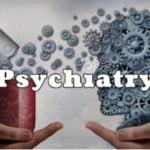Part 3: Your 10 Step Plan
So now you are familiar with trauma and you are starting to understand how this pandemic is impacting your emotional, mental and physical wellbeing. And those around you as well. One key takeaway is that what you do today, in the midst of this crisis, will determine how well you emerge and what long-term impact this has on your future self.
The steps you take today will determine the strength of your mental, emotional and physical health in the coming weeks.
This can absolutely be an opportunity to develop a strong mind and new skills that lead to your best self. Or, this can be a time that saddles you with anxiety, depression and results in possible chronic PTSD. While we may be powerless over the virus, using this time to build our mental game is completely in our control. Carpe diem.
- Anticipate: Emotions are running high. Be prepared for overreactions in yourself and others. Adopt a filter of listening that turns the temperature down.
- Calm: Bring your awareness to your breath and body to get out of your head, and out of autonomic reaction. Return to deciding instead of reacting. See ‘Breath Training’ in Part 2.
- Be Aware: Listen to your thoughts and feelings, and to your senses. They are barometers of your mental and physical states and can pull you back into the ‘now’.
- Impulses: We have a steady stream of impulses that need to be recognized, but don’t need to be obeyed. If you find yourself impulsively worrying and imagining worst case scenarios, choose to change your mental channel. Invariably, worry worsens the outcome and rarely improves it.
- Behavior: Observe your own behavior to notice uncharacteristic or impulsive actions you know aren’t your best you. Behavior you regret is an offshoot of unprocessed emotions. As we all experience a sense of being overwhelmed, fear and anger may surface as hateful comments, snapping at your family, binge eating or drinking, etc. These will be hard to control until you recognize and process your feelings. Add to this, your family is going through the exact same emotions, and need a similar release.
- Focus: At times, we may all feel panic or despair, be it fleeting or ongoing. Change your focus away from your fears to your eyes, ears and nose. Find the small miracles around you: buds on the trees, the wind on your face, the sound of your child’s laughter, your favorite kitchen aromas. Drink them in and let yourself be lifted up by them.
- Attach: In social isolation, we have to make the effort to stay attached and emotionally connected to others. Loving and being loved are critical to not feeling alone, to maintaining happiness and to staying healthy. Texting isn’t enough – make an old-fashioned phone call or join in on a video conference call with friends. Regular connection is essential for yourself, and a loving act for those you connect with.
- Move: Nothing regulates stress like exercise, giving you a sense of mastery and control. Whatever your chosen exercise, do it regularly and energetically. Walking, squats, push-ups, bands, kettle bells are all great. Or, invent your own routine. The key is to keep moving.
- Schedule: Lack of structure can rob you of energy and momentum. Set a schedule and keep it – wake and sleep times, mealtimes, exercise, reading, blogging, cleaning, projects – schedule them in and stay on track. That’s the key to turning these days into valuable time you look back on with pride, versus ‘lost days’ you regret.
- Ask: We are all affected by this, and when it becomes too much, ask for help. Reach out to a friend to talk it through, or when you feel stronger, offer up your help to those in need. This is the time to recognize that we need each other – it is not a weakness. If you or your family need more support, our practice is open and offering both in person and telemedicine visits for mental or physical health needs.
The steps you take today will determine the strength of your mental, emotional and physical health in the coming weeks. Moreover, relieving the overwhelming stress of these times will help prevent longterm effects, including the onset of PTSD in yourself and your family members. If you have a history of depression, anxiety or stress disorders, recognize these times will exacerbate your condition.
If you or your family need support, our practice is open and offering both in person and telemedicine visits for mental or physical health concerns. Contact us at (248) 593-8540 or email [email protected]









1 thought on “Traumatized by Coronavirus: Part 3”
Comments are closed.